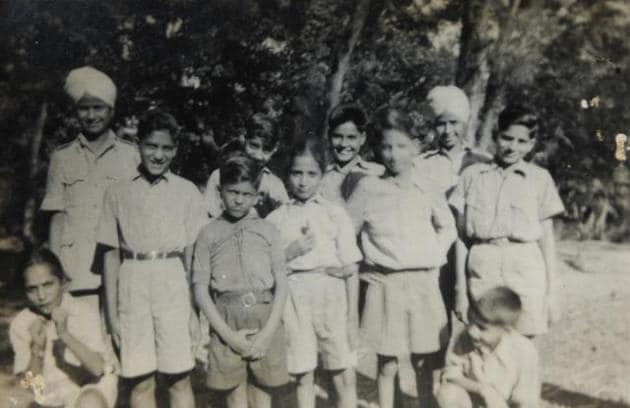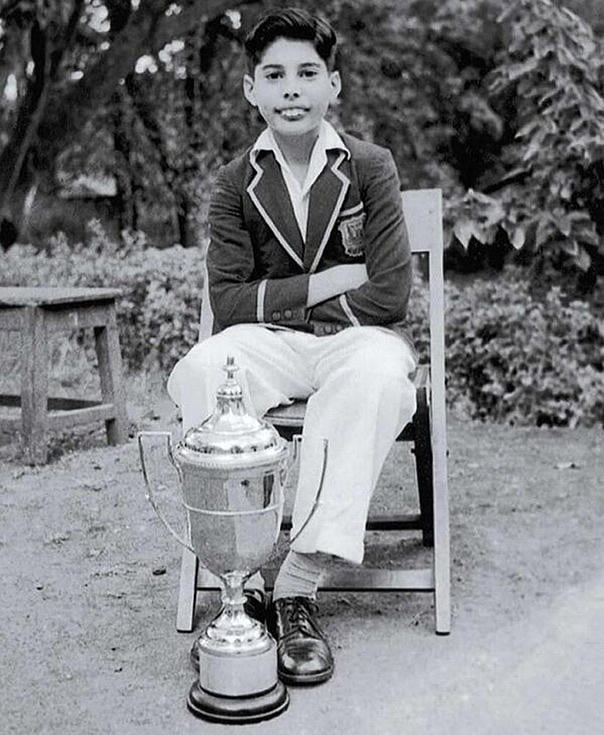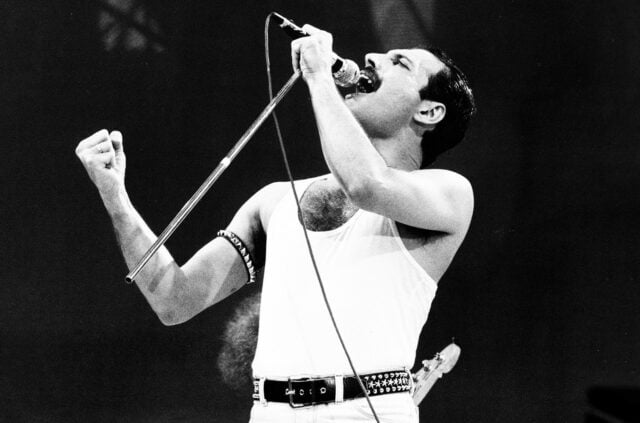The legendary lead singer of the rock band Queen – Freddie Mercury is originally British but he was born to Parsi-Indian parents in Zanzibar, an island off the coast of Tanzania. His original name is Farrokh Bulsara. One simply cannot think about rock music without Freddie Mercury popping into our minds. His flamboyant stage persona and four-octave vocal range have left quite a noticeable impact on the history of rock music.
Freddie Mercury’s Indian Heritage
Farrokh Bulsara aka Freddie Mercury’s parents were from the Parsi community of western India. The Bulsaras had origins in the city of Bulsar now Valsad which is in Gujarat. He had a younger sister, Kashmira. Freddie Mercury was sent to India at the age of eight to be educated at St. Peter’s School, an all-boys boarding school in Panchgani that was then known as Bombay. It is in this particular boarding school that he became popularly known as Freddie. ttt
At the age of 12, Freddie along with his four friends formed a school band called “The Hectics.” They covered rock and roll artists such as Cliff Richard. According to one of his friends, Freddie had the uncanny ability to listen to the radio and replay what he heard on piano.
Owing to his musical prowess and overall inclination towards all things artistic, the quiet-yet-talented Mercury received the Junior All-Rounder trophy for all his achievements at the age of 12.

Freddie Mercury was no less than a prodigy!
Mercury never discussed his ethnic or religious background. The closest he came to doing so was in response to a question about his outlandish persona, he said,
“That’s something inbred, it’s a part of me. I will always walk around like a Persian popinjay“, an oblique reference to his Indian Parsi background.

However, in 1964 Freddie along with his family fled the Zanzibar Revolution, moving to Middlesex, England. The Zanzibar Revolution of 1974 was consuming everything and everyone in its path. Thousands of Indians were killed. This displacement of identity and location forms a key theme to most of his song lyrics.
The influence of his childhood is evident in his songwriting. It is blatant in songs like Mustapha. Mustapha features Mercury doing essentially the kind of vocalizing that you would do in a call to prayer. Other songs — including the epic Bohemian Rhapsody — can also be viewed as examples of postcolonial songwriting.
Read More: In Pics: Four Movies That Inspired BTS Music Videos
Freddie Mercury – An Inspiration Especially For Parsis
That connection to Mercury’s work is particularly strong in the Indian Parsi community, who first came to India from Iran in the eighth century to escape religious persecution. For musician Pheroze Karai, 39, Queen has always been part of the soundtrack of his life.

According to him, if you were to grow up in a Parsi household in the 80s and 90s, Freddie Mercury was a shining star. In fact, Karai reminisces how his mother cried for days when she heard of Mercury’s demise in 1991.
“He was definitely held up as one of the examples that Parsis can do anything”
The 1990s was a time of flourishment for the Parsis but also a time of decline in their population. According to a lot of Parsis, it was his songs and his band that helped them in every way possible.
Why the Transformation from Farrokh Bulsara to Freddie Mercury?
Freddie adopted the surname “Mercury” later after they emigrated to the UK and he began pursuing a music career in West London. According to his Queen bandmate Brian May, changing his name was a lot like assuming a different skin for Freddie. The Bulsara person was still there, but for the public, he was going to be this different character, this god. This character also helped him to overcome some of the racial prejudices of the era.
Leo Kalyan, who is a queer British Pakistani and Indian singer-songwriter claims that there was no room for brown people in the Western music industry during that time and Freddie was smart enough to know that he basically had to masquerade as a white man to succeed and that his South Asian heritage is still not fully understood today because South Asians are still deliberately ignored within the Western music industry.
Freddie Mercury – A Legend
Nearly 30 years after his death Freddie Mercury still remains cherished. He is a massive queer icon and a brown South Asian icon in western music. In an era when homophobia and racism were far more prevalent than they are today, Freddie Mercury was the queer, South Asian front man of the band who released one of rock’s most iconic singles, Bohemian Rhapsody, and the best-selling album in UK chart history, Queen’s Greatest Hits.
Image Sources: Google Images
Sources: Hindustan Times, NBC news
Find the Blogger: @Rishita51265603
This post is tagged under Freddie mercury, queen, farrokh bulsara, indian heritage, indian lineage, bohemian rhapsody, pheroze karai, global sensation, inspiration, queer icon, western music, rock music
More Recommendations:
ResearchED: The Rise Of Anti-Caste Dalit Artists In India Who Believe In Protesting Through Music




































How could Freddie Mercury be called brown south Asian, when his skin was white!?